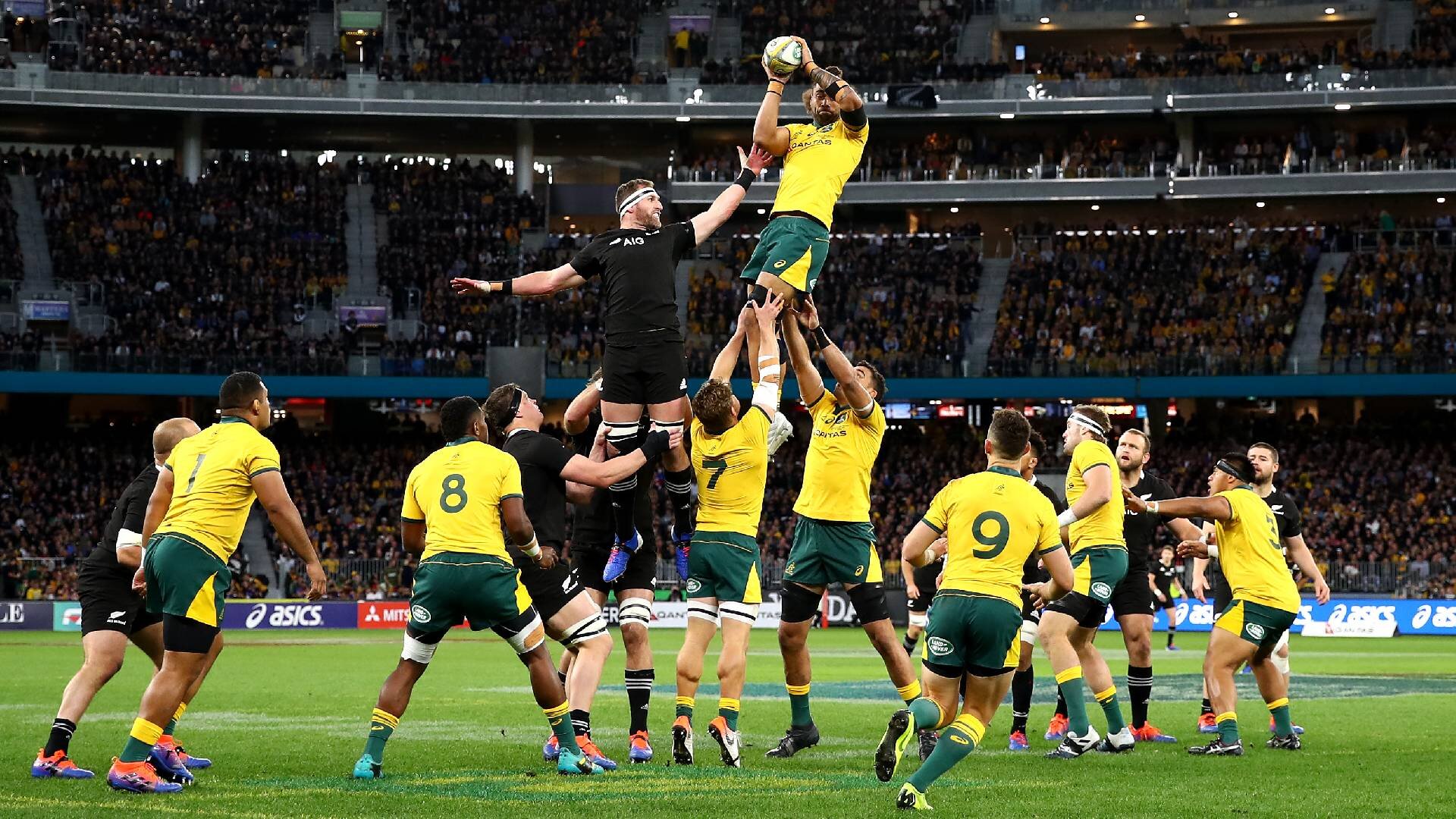New Zealand Rugby, Rugby Australia facing collective loss of over $200m from coronavirus

New Zealand Rugby and Rugby Australia are both facing significant financial losses collectively totalling in nearly a quarter of a billion dollars as a result of this year’s COID-19 outbreak.
Worst-case scenario projections have forecasted a NZ$130m loss for NZR should no rugby be played for the remainder of 2020, while RA could find themselves without NZ$91.3m by the end of the year.
A report from 1News on Wednesday unveiled that an NZR a conference call was held between with the chairpersons and chief executives of New Zealand’s provincial unions and Super Rugby clubs to discuss financial issues with NZR boss Mark Robinson.
Continue reading below…
It is reportedly understood that the attendees of the online meeting were told that NZR and the New Zealand Rugby Players’ Association are currently in negotiations for a pay cut, a burden of which the players will be expected share.
1News reported that players could anticipate pay cuts of up to 25 percent, which comes off the back of NZR staff taking a 40 percent slash from their incomes from April 1.
Despite this, no coronavirus-related compensation package has been put in place for the Super Rugby franchises, while the provincial unions were also reportedly told by Robinson that their quarterly payments from NZR were at risk.
That news comes days after Robinson had already admitted that his organisation would seek financial assistance from the New Zealand Government.
“At some stage, yes, we will be having a conversation about what the possibilities are and what our situation looks like,” Robinson said on Monday when quizzed about pursuing a payout.
“It’s an incredibly challenging situation for everyone around the country and we understand the gravity of what the Government has announced today. It impacts on everyone across New Zealand.”
Eddie leading by example. https://t.co/BvTLIGQ64g
— RugbyPass (@RugbyPass) March 26, 2020
It’s a similarly bleak situation in Australia, where the sponsorship arrangements are drying up, broadcasting revenue seems limited and the prospect of hosting Wallabies matches are coming under scrutiny amid the COVID-19 pandemic.
A Sydney Morning Herald report outlined what it described as a “doomsday scenario”, whereby RA would have to cancel its home test matches and would be starved of an opportunity to host its proposed domestic Super Rugby competition.
If such a situation came to fruition, the governing body would have to surrender broadcast rights payments for the next three quarters, totalling in NZ$43.37m, as well as a NZ$1.01m fee for a potential test against Wales in November.
Gate revenue from all seven of the Wallabies’ scheduled test matches this year would also go missing.
Based off revenue figures from 2018, RA netted NZ$20.29m in gate takings from tests and the Sydney Sevens in addition to the NZ$28.4m from sponsorship deals.
Add those numbers to the lost revenue from forgone quarterly broadcast payments and the Welsh test match fee, and RA is staring down the barrel of a NZ$91.3m loss.
https://www.instagram.com/p/B-NmRMIAtpQ/?utm_source=ig_web_copy_link
The SMH report stated that such a loss represents 80 percent of RA’s operating costs based on the 2018 figures, leaving the organisation in a perilous state.
Less severe scenarios have also been formulated, however, including the return of the Rugby Championship in some type of form, dependent on travel restrictions later in the year.
The mooted domestic competition, which would have seen the return of the Western Force to play the Reds, Waratahs, Brumbies and Rebels, could also be salvaged, while Australia’s end-of-year tour to Europe remains a possibility.
That tour in November – where the Wallabies are scheduled to play Ireland, France, England and possibly Wales – could alleviate some financial pressure as RA would then only have to sacrifice one (NZ$14.5 million) or two ($NZ18.83 million) quarters of broadcast revenue, in addition to ticket sales from home matches.
RA chief executive Raelene Castle isn’t expected to make any public announcements on cost-saving procedures until early next week.
In other news:











































































